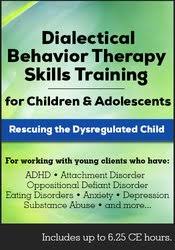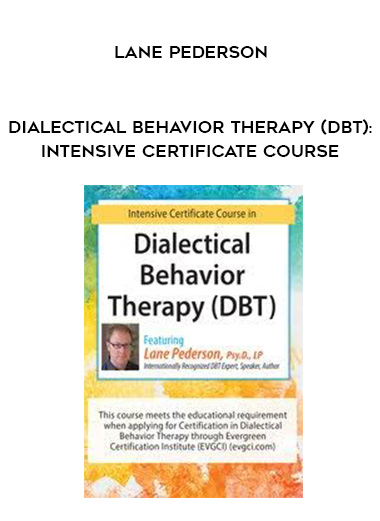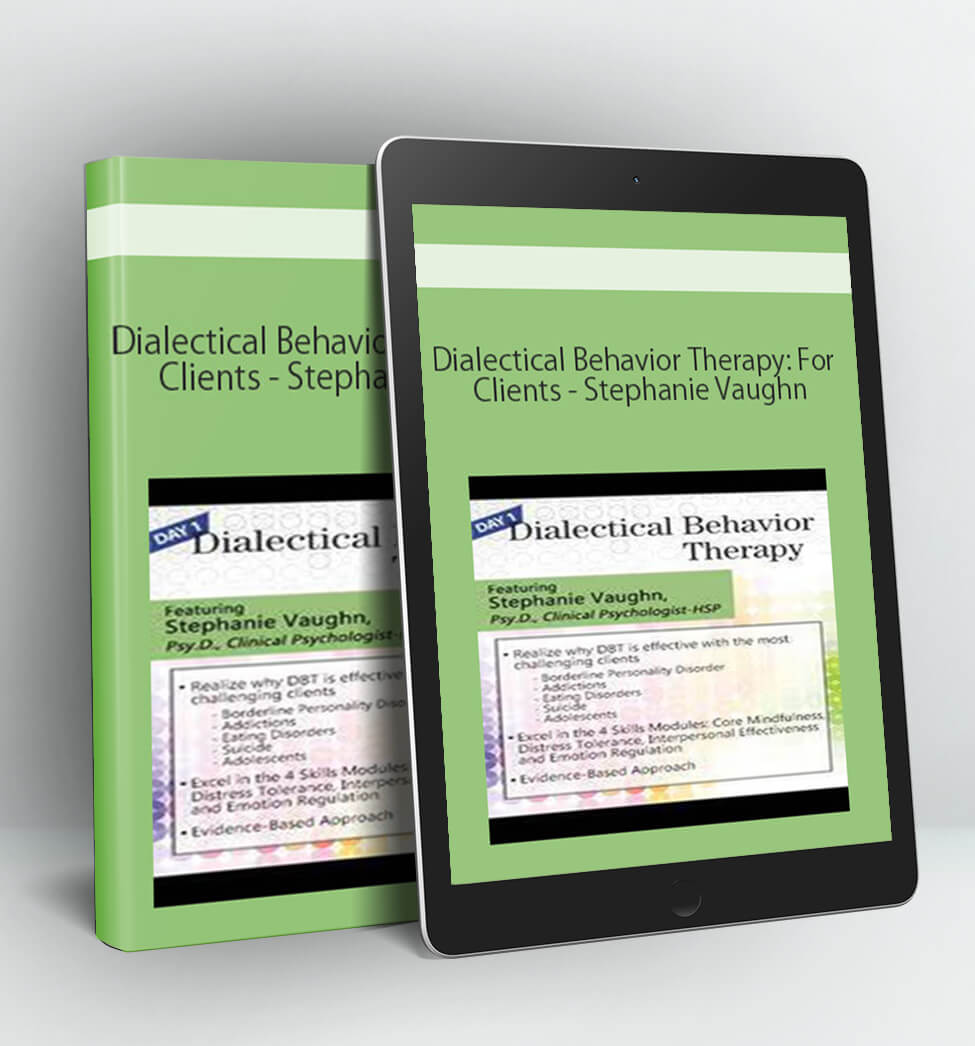DIALECTICAL BEHAVIOR THERAPY SKILLS TRAINING FOR CHILDREN AND ADOLESCENTS: RESCUING THE DYSREGULATED CHILD – JEAN EICH
Dialectical Behavior Therapy (DBT) is one of the fastest growing approaches — because it works! It harnesses the power of CBT and mindfulness in a strategic way that gets results.
And now you can learn how to share and adapt the evidence-based DBT model for children and adolescents in practical and engaging ways — tailored to their unique developmental needs.
Join DBT expert Jean Eich, Psy.D, LP, to discover how DBT can help the kids you work with manage out of control behaviorsand emotional regulation deficits that can often be associated with ADHD, attachment disorder, ODD, eating disorders, anxiety, depression, substance abuse and more…
You’ll get step by step instruction on how to use mindfulness strategies and techniques that will help young clients observe and identify moments of distress, master skills to manage their emotions and behaviors, and develop communication strategies to talk about how they’re feeling so they can maintain healthy, positive relationships.
This course will help make even your most challenging child and adolescent clients easier to treat by showing you step by step how you can use DBT in a fluid and flexible way specific to your clients — so you can help transform treatment outcomes and improve the health, well-being and happiness of today’s youth.

Dialectical Behavior Therapy (DBT): The Basics
You’ll begin your training by exploring the fundamentals of DBT. Join Jean as she shows you how dialectics can be used to treat the whole person rather than a disorder or illness, and how practicing an extreme form of acceptance will help drive change in your clients of all ages. You will also take an in-depth look at…
- Key ingredients of effective DBT practice
- Effects of inadequate validation in early emotional development
- Symptoms of a pervasive emotional dysregulation disorder

Informing Treatment Based on Developmental Stages and Tasks
In module two, you’ll explore how the developmental stages of children and adolescents can be used to guide and inform your treatment plan. Join Jean as she shows you how to create an environment that allows children and teens to learn and practice their new skills and abilities. Together, you will explore…
- How to use developmental stages as a guide for what is typical or beyond typical in a child or teen’s presentation
- Strategies to support development for adolescents adjusting to a changing body
- Tools for helping children establish an identity, develop responsibility and build autonomy

Dialectical Philosophy and Treatment Structure
Begin module three by examining the standard dialectical dilemmas and how these dilemmas change for children and adolescents. You’ll then learn the structure and treatment stages that will guide your decisions on what to treat and when. Finally, you’ll cover how to measure your client outcomes to help improve treatment and success of clients.
- How to structure therapy and the environment to create safety, predictability and success
- Including parents in the treatment process
- Using the DBT stages and targets to keep therapy on track
- Adapting targets or goals to fit the needs of your client
- The 5 functions your therapy program needs
- Creating an effective skills training environment for children of all ages

Skills Training: Mindfulness, Distress Tolerance, and Emotion Regulation
In module four, you’ll learn how to use skills training to help decrease maladaptive behaviors while increasing adaptive behaviors. Jean will show you step by step how to integrate skills into your therapy practice and the methods you need to effectively teach skills training to children and adolescents.
- How clients can use Mindfulness to be planful and responsive
- Strategies for accepting reality, including radical acceptance
- Survival skills to get through a crisis without making it worse
- How to increase clients’ abilities to copy with future stress
- Tools to reduce emotional suffering and vulnerability and increase positive emotions

Behavior Modification and DBT
In the final module, you’ll complete your skills training knowledge by learning how to teach your clients interpersonal effectiveness skills. You’ll then explore age appropriate interventions and strategies for validation, reciprocal communication, behavior chains, diary cards and more. Finally, you’ll discover how to use your new DBT skills when working with depression, anxiety, eating disorders, substance abuse, PTSD and trauma, ADHD, ODD and attachment disorder.
- Tools for helping clients build and maintain healthy relationships
- Validation and alignment interventions to help regulate emotions and decrease their intensity
- How to utilize DBT agreements with parents and clients
- Strategies for helping caregivers reinforce the child’s new skills and healthy behaviors
- Using diary cards to track symptoms and skill use
- Adapting DBT for many diagnoses
Tag: Dialectical Behavior Therapy Skills Training for Children and Adolescents: Rescuing the Dysregulated Child – Jean Eich Review. Dialectical Behavior Therapy Skills Training for Children and Adolescents:
Rescuing the Dysregulated Child – Jean Eich download. Dialectical Behavior Therapy Skills Training for Children and Adolescents: Rescuing the Dysregulated Child – Jean Eich discount.




